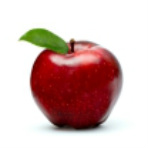
Organic Food - too good to be true?
Eating Free; How to Minimize Pesticide Exposure
There are different approaches to minimizing pesticide exposure- we can go all the way, sparing no expense, and eat an all-organic diet. This can be costly, especially if one wants to eat meat and poultry, or if lots of pre-made, packaged foods are used.
All of us have likely seen the lists of the top ten worst offending fruits and vegetables, and we might wonder how do we follow the advice to eat lots of fruits and vegetables, if they are “full of pesticides”.
Fruits and Veggies are good for me!
But what about the pesticides?
Fruits and vegetables often have traces of pesticides, it is true, but the levels are much, much lower than levels found in meat, poultry, and dairy products. So, eating fruits and vegetables, even if they are conventionally grown, does you a lot more good than harm.
Research looking at fruit and vegetable consumption, finds that they are extremely good for health. Epidemiological research (looking at large groups or populations) finds less cancer, brain deterioration, osteoporosis, obesity, and eye problems amongst people who eat lots of fruits and vegetables, compared to those who eat less.
Pesticides are definitely associated with many kinds of cancers, and reproductive and other sexual function problems (1,2,3,4,5,6, and 7, in the references at the bottom of this page).
All conventional animal foods are LOADED with pesticide residues for one main reason; animals (and humans) CONCENTRATE pesticides in their body- this is called bio accumulation. This is because pesticides break down very slowly, and are difficult to metabolise and excrete. So, as an animal eats pesticides in it’s feed, day after day, the levels of pesticides in it’s body build up, until the day of slaughter. So if you are going to go organic on part of your diet, switch your animal foods first. Use organic butter, cheese, meats, and poultry. In commercial farming, animals are often directly sprayed with pesticides, to treat infestations, like ticks and mange. For an in depth, thoroughly-researched look at modern animal ‘farming’, I highly recommend ‘Diet for a New America’, by John Robbins.
Eating Free; How to Minimize Pesticide Exposure
There are different approaches to minimizing pesticide exposure- we can go all the way, sparing no expense, and eat an all-organic diet. This can be costly, especially if one wants to eat meat and poultry, or if lots of pre-made, packaged foods are used.
All of us have likely seen the lists of the top ten worst offending fruits and vegetables, and we might wonder how do we follow the advice to eat lots of fruits and vegetables, if they are “full of pesticides”.
Fruits and Veggies are good for me!
But what about the pesticides?
Fruits and vegetables often have traces of pesticides, it is true, but the levels are much, much lower than levels found in meat, poultry, and dairy products. So, eating fruits and vegetables, even if they are conventionally grown, does you a lot more good than harm.
Research looking at fruit and vegetable consumption, finds that they are extremely good for health. Epidemiological research (looking at large groups or populations) finds less cancer, brain deterioration, osteoporosis, obesity, and eye problems amongst people who eat lots of fruits and vegetables, compared to those who eat less.
Pesticides are definitely associated with many kinds of cancers, and reproductive and other sexual function problems (1,2,3,4,5,6, and 7, in the references at the bottom of this page).
All conventional animal foods are LOADED with pesticide residues for one main reason; animals (and humans) CONCENTRATE pesticides in their body- this is called bio accumulation. This is because pesticides break down very slowly, and are difficult to metabolise and excrete. So, as an animal eats pesticides in it’s feed, day after day, the levels of pesticides in it’s body build up, until the day of slaughter. So if you are going to go organic on part of your diet, switch your animal foods first. Use organic butter, cheese, meats, and poultry. In commercial farming, animals are often directly sprayed with pesticides, to treat infestations, like ticks and mange. For an in depth, thoroughly-researched look at modern animal ‘farming’, I highly recommend ‘Diet for a New America’, by John Robbins.
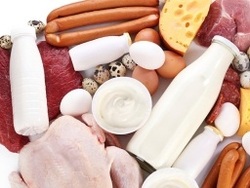
“about 90% of pesticides and environmental toxins in the body of a typical American come from the meat, poultry, and dairy products they consume “- U.S. Environmental Protection Agency
Comparisons of pesticide levels in different foods have been done by many groups, agencies, and researchers; plant foods are far less ‘contaminated’ by pesticides and other contaminants than animal foods. The safest foods tend to be grains, beans, fruits and vegetables.
Animal Foods more Contaminated
The most contaminated foods are beef, chicken, turkey, and dairy products, especially fatty dairy products, like butter and cheese. According to the U.S. EPA (Environmental Protection Agency), hardly a holistic agency at all- about 90% of pesticides and environmental toxins in the body of a typical American person comes from the meat, poultry, and dairy products they consume. Researchers have consistently found far, far lower levels of contaminants in the breast milk of vegetarian women, compared to meat- eaters(8, 9, and 10). Remember that the EPA claims that pesticides, in amounts normally consumed are safe. A surprising claim, given that testing of pesticide levels in the food supply is very spotty, and when excessive levels are found, there is often no idea as to how long the supplier/ producer in question has been over limit. Also, many chemicals are present in standard pesticide/ herbicide/ fungicide preparations which are not listed on the label, or tested for, because they are claimed to be 'inert'. Many of these 'inert' ingredients are as toxic as any of the 'active' ingredients. Buyer beware is particularly fitting here!
In restaurants or other people's homes, I eat vegetarian if no organic animal products are available!
Animal Fat
Animal fat has a lot of bad publicity, due to it’s high saturated fat content. This is really the least of the problem, since natural saturated fats are a very weak serum cholesterol elevator. We do not have to worry about heart health from the effects of natural saturated fats! Let me repeat that; animal fats are not a concern for health or for heart health! Just ask enlightened Registered Dietitians who actually look at the hard research instead of parroting and regurgitating the propagandic drivel they are taught in school! Like Mary Enig, RD and Sally Fallon, RD. And also a heart surgeon, who actually knows about nutrition; believe me this is more than a rarity; it's a miracle; Mr Dwight Lundell, MD.
The junk oils being marketed to us, in the form of (overprocessed) vegetable oils, and (modified or hydrogenated) margarines, and especially deep fryer vegetable oils are the biggest cholesterol problem- they send blood cholesterol levels soaring. This ill effect has been well documented since at least the 1950’s, but has not been heard over the roar of commercial propaganda, alluring us into consuming profitable junk fats. Read my fats page, to understand the truth (and how far from the truth the promotion of vegetable oils are; especially toxic canola).
Getting back to pesticide and contaminant residues, here is where animal fats are a problem. Most pesticides and dangerous contaminants like PCB's are fat soluble, and animals tend to accumulate pesticides and other toxins, in their fat stores especially, we can start to understand why animal fat is the most contaminated part of our diet. Eating less animal fat means eating less pesticides. Butter is more contaminated than lowfat yogourt. A lot more. Low fat cheese is less contaminated than Havarti. Similarly, extra lean meat will have less pesticide residues than spare ribs, or well-marbled steak.
I eat loads of butter, beef fat, lamb fat, whole eggs, and poultry with the tasty skin on with no worries because it's all organic or legitimately naturally raised.
Comparisons of pesticide levels in different foods have been done by many groups, agencies, and researchers; plant foods are far less ‘contaminated’ by pesticides and other contaminants than animal foods. The safest foods tend to be grains, beans, fruits and vegetables.
Animal Foods more Contaminated
The most contaminated foods are beef, chicken, turkey, and dairy products, especially fatty dairy products, like butter and cheese. According to the U.S. EPA (Environmental Protection Agency), hardly a holistic agency at all- about 90% of pesticides and environmental toxins in the body of a typical American person comes from the meat, poultry, and dairy products they consume. Researchers have consistently found far, far lower levels of contaminants in the breast milk of vegetarian women, compared to meat- eaters(8, 9, and 10). Remember that the EPA claims that pesticides, in amounts normally consumed are safe. A surprising claim, given that testing of pesticide levels in the food supply is very spotty, and when excessive levels are found, there is often no idea as to how long the supplier/ producer in question has been over limit. Also, many chemicals are present in standard pesticide/ herbicide/ fungicide preparations which are not listed on the label, or tested for, because they are claimed to be 'inert'. Many of these 'inert' ingredients are as toxic as any of the 'active' ingredients. Buyer beware is particularly fitting here!
In restaurants or other people's homes, I eat vegetarian if no organic animal products are available!
Animal Fat
Animal fat has a lot of bad publicity, due to it’s high saturated fat content. This is really the least of the problem, since natural saturated fats are a very weak serum cholesterol elevator. We do not have to worry about heart health from the effects of natural saturated fats! Let me repeat that; animal fats are not a concern for health or for heart health! Just ask enlightened Registered Dietitians who actually look at the hard research instead of parroting and regurgitating the propagandic drivel they are taught in school! Like Mary Enig, RD and Sally Fallon, RD. And also a heart surgeon, who actually knows about nutrition; believe me this is more than a rarity; it's a miracle; Mr Dwight Lundell, MD.
The junk oils being marketed to us, in the form of (overprocessed) vegetable oils, and (modified or hydrogenated) margarines, and especially deep fryer vegetable oils are the biggest cholesterol problem- they send blood cholesterol levels soaring. This ill effect has been well documented since at least the 1950’s, but has not been heard over the roar of commercial propaganda, alluring us into consuming profitable junk fats. Read my fats page, to understand the truth (and how far from the truth the promotion of vegetable oils are; especially toxic canola).
Getting back to pesticide and contaminant residues, here is where animal fats are a problem. Most pesticides and dangerous contaminants like PCB's are fat soluble, and animals tend to accumulate pesticides and other toxins, in their fat stores especially, we can start to understand why animal fat is the most contaminated part of our diet. Eating less animal fat means eating less pesticides. Butter is more contaminated than lowfat yogourt. A lot more. Low fat cheese is less contaminated than Havarti. Similarly, extra lean meat will have less pesticide residues than spare ribs, or well-marbled steak.
I eat loads of butter, beef fat, lamb fat, whole eggs, and poultry with the tasty skin on with no worries because it's all organic or legitimately naturally raised.
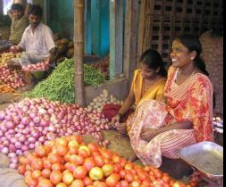
Go to Anthony's TO picks to see my fave places in Toronto to get all kinds of healthy and/ or organic foods!
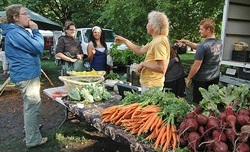 scene at Dufferin Grove Farmer's Market
scene at Dufferin Grove Farmer's Market
Don’t Panic- Buy Organic
Organic meats are far cleaner than commercial meats, and safer- no cow anywhere has been fed cow carcass scraps, and sold as ‘organic’. Commercial cows are often fed carcass scraps, even in today’s post mad cow scare world! All feed given to animals sold as organic must also be organically grown, and pasture lands for organic animals may not be sprayed with herbicide, pesticide, or any other ‘-cide”.
Organic animal farming is definitely a lot kinder to the animals, since antibiotics and other drugs cannot be administered under mandated organic farming practice. Healthy, properly cared for animals tend to be healthy, with strong immune systems- their immunity is usually much stronger than humans’. Commercially raised animals live in torturous conditions, and could not survive without steady stream of antibiotics and other drugs in their feed, which compensate for their burnt-out immune systems. Most antibiotics manufactured in North America are fed to livestock and poultry, who then pass on residues of those drugs into those who eat them!
Make a wiser choice. Support yourself, the planet and local organic farmers and retailers. I love all the farmer's markets in Toronto, many of which go year round. St Lawrence runs Saturday morning, from way before you wake up til around noon. Dufferin grove is fantastic, and goes Thursdays, 3;00 until 7:00. buy Beretta Beef, Chicken and some turkey as well as organic breads, ready to eat foods and a serious amount of fruits and veggies, and even the mushroom man is often there with killer kombucha and other fungal treats, like exotic mushrooms and more standard fare, like button shiitake and portobello fungi. Fun guy, too hardy har har. Whychwood barns is awesome, I forget what day ... and the Brickworks off bayview, just south of Pottery rd is rocking good. Believe there's a shuttle bus to it from Broadview station, on Saturday mornings when that runs. Check out the City of Toronto listing, City of Toronto Markets
How about Fish?
Sadly, all of the world’s major fish stocks are over-fished. An older fisherman told me that he remembered, as a young man, throwing the net overboard, and it being quickly filled with fish, practically bursting with cod, off the coast of Newfoundland. The sea itself was so much cleaner then than now, and much less fished. Part of the reason the oceans are so over-fished is that over half of the world fish catch is fed to livestock! The level of fertility-poisoning contaminants like dioxins and PCB’s are reaching levels that are measurably affecting most land and sea wildlife, so natural reproduction is down. In spite of the compromised seas, I still believe that some fish is a good idea for our health.
Eat smaller, wild caught fish, which are not endangered; herrings, sardines, anchovies, and smaller mackerel are all good.
Avoid any farmed fish, since they are much more contaminated by environmental toxins, and they are raised on a diet of antibiotic-laced pellets.The flesh of farmed fish can have levels of antibiotics that are off the charts! Like way higher than what you would find in the worst feedlot USA beef! That includes 90% of all the salmon you'll ever see, especially including sushi and sashimi.
Canadian wild freshwater fish is also good, provided it is not from the Great Lakes, with the exception of lake Superior. How we managed to pollute the largest lakes in the world is a crime that we need to make amends for. Show your environment that you care- avoid all toxic products at home, and watch what you put down the drain. Clean yourself and your home with natural products- visit GrassRoots, with two locations in Toronto, for ideas. Actually Noah's, and the Big Carrot are good places to check for natural cleaning products, as well. You can clean almost anything very well with baking soda and some scrubbing.
Ask your MPP, your MP, and your local Councilor if you live near the sea or a large lake; "What are we doing to protect/ clean up our precious water resources?"
Organic meats are far cleaner than commercial meats, and safer- no cow anywhere has been fed cow carcass scraps, and sold as ‘organic’. Commercial cows are often fed carcass scraps, even in today’s post mad cow scare world! All feed given to animals sold as organic must also be organically grown, and pasture lands for organic animals may not be sprayed with herbicide, pesticide, or any other ‘-cide”.
Organic animal farming is definitely a lot kinder to the animals, since antibiotics and other drugs cannot be administered under mandated organic farming practice. Healthy, properly cared for animals tend to be healthy, with strong immune systems- their immunity is usually much stronger than humans’. Commercially raised animals live in torturous conditions, and could not survive without steady stream of antibiotics and other drugs in their feed, which compensate for their burnt-out immune systems. Most antibiotics manufactured in North America are fed to livestock and poultry, who then pass on residues of those drugs into those who eat them!
Make a wiser choice. Support yourself, the planet and local organic farmers and retailers. I love all the farmer's markets in Toronto, many of which go year round. St Lawrence runs Saturday morning, from way before you wake up til around noon. Dufferin grove is fantastic, and goes Thursdays, 3;00 until 7:00. buy Beretta Beef, Chicken and some turkey as well as organic breads, ready to eat foods and a serious amount of fruits and veggies, and even the mushroom man is often there with killer kombucha and other fungal treats, like exotic mushrooms and more standard fare, like button shiitake and portobello fungi. Fun guy, too hardy har har. Whychwood barns is awesome, I forget what day ... and the Brickworks off bayview, just south of Pottery rd is rocking good. Believe there's a shuttle bus to it from Broadview station, on Saturday mornings when that runs. Check out the City of Toronto listing, City of Toronto Markets
How about Fish?
Sadly, all of the world’s major fish stocks are over-fished. An older fisherman told me that he remembered, as a young man, throwing the net overboard, and it being quickly filled with fish, practically bursting with cod, off the coast of Newfoundland. The sea itself was so much cleaner then than now, and much less fished. Part of the reason the oceans are so over-fished is that over half of the world fish catch is fed to livestock! The level of fertility-poisoning contaminants like dioxins and PCB’s are reaching levels that are measurably affecting most land and sea wildlife, so natural reproduction is down. In spite of the compromised seas, I still believe that some fish is a good idea for our health.
Eat smaller, wild caught fish, which are not endangered; herrings, sardines, anchovies, and smaller mackerel are all good.
Avoid any farmed fish, since they are much more contaminated by environmental toxins, and they are raised on a diet of antibiotic-laced pellets.The flesh of farmed fish can have levels of antibiotics that are off the charts! Like way higher than what you would find in the worst feedlot USA beef! That includes 90% of all the salmon you'll ever see, especially including sushi and sashimi.
Canadian wild freshwater fish is also good, provided it is not from the Great Lakes, with the exception of lake Superior. How we managed to pollute the largest lakes in the world is a crime that we need to make amends for. Show your environment that you care- avoid all toxic products at home, and watch what you put down the drain. Clean yourself and your home with natural products- visit GrassRoots, with two locations in Toronto, for ideas. Actually Noah's, and the Big Carrot are good places to check for natural cleaning products, as well. You can clean almost anything very well with baking soda and some scrubbing.
Ask your MPP, your MP, and your local Councilor if you live near the sea or a large lake; "What are we doing to protect/ clean up our precious water resources?"
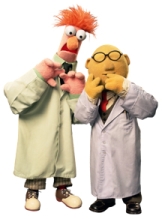
Can I Trust Organic? What does the research show?
Is so-called ‘organic food’ actually cleaner than regular, or commercially grown food? Let us examine some published evidence. A study was designed to examine the hardest evidence possible- people who ate organic, versus people who ate commercially grown, or ‘conventional’ foods.(11)
These researchers examined pesticide residues in children’s urine, after confirming with their parents if the children were fed organic foods, or ‘regular’ foods. The organic children were 9 times cleaner. That means, the regular food eating children had 9 times more pesticides in their urine; not just double, which would have been plenty of difference, or even triple, but 9 times more.
Is so-called ‘organic food’ actually cleaner than regular, or commercially grown food? Let us examine some published evidence. A study was designed to examine the hardest evidence possible- people who ate organic, versus people who ate commercially grown, or ‘conventional’ foods.(11)
These researchers examined pesticide residues in children’s urine, after confirming with their parents if the children were fed organic foods, or ‘regular’ foods. The organic children were 9 times cleaner. That means, the regular food eating children had 9 times more pesticides in their urine; not just double, which would have been plenty of difference, or even triple, but 9 times more.
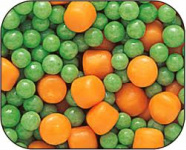
Healthier Produce
Organic fruits and vegetables contain more vitamins and minerals than commercially grown produce, according to most studies looking at nutrient content. Knowing that organic farmers use natural, rich soil improvement methods, like compost, seaweed, powdered rock, and manure, this finding makes perfect sense. The amount of difference is admittedly sometimes not very much and in fact some research concludes the difference is not significant. It all depends where the produce comes from; the local soil conditions. There was an idiotic article in the national Post not long ago saying organic food was no different than commercially grown food, which was based on a study showing nutrient value to be very similar. But gee, what about the lack of TOXINS? Stupid media. Or co opted media, or maybe stupid AND co-opted media.
Commercial farms are often run by businessmen who rarely see their farms. They use cheap hired labour to spray their fields, and their large operations often dump manure into surrounding lakes and streams, since it is not cost effective for them to compost and spread it, in their over-grown, agri-business set ups. So let us support local, smaller farms. organic farms are often more local and small. Shopping at farmer's markets or pro-active stores like the Big Carrot and 4 Life Foods is great too; they actively support smaller, local organic farms.
Now What?
We live in a world that has a bunch of us on it that behave as if someone else will clean up after us! Our world is contaminated to a degree; even our most pristine, remote areas; penguins in Antarctica and Polar bears in the Arctic have measurable levels of pesticides and environmental pollutants, at times rendering their meat unfit for safe consumption. So, being absolutely free of pesticides and contaminants may not be possible, but we can make a huge difference, if we try to eat healthier, cleaner food. There's lots more Eco ideas on my Earth Friendly page.
For those of you who can not afford buying organic food, or do not want to, eating less animal foods and more plant foods will reduce your contaminant load greatly. Try more beans, nuts, and seeds, and less meat, poultry, and dairy. And lots of fruits and vegetables.
For those who want to explore the number one healthy choice, organic; check local farmer’s markets for organic produce, or try one of the numerous organic delivery services, including planB organics, who operate a farm as well; check out plan B organic farms, Front Door Organics, the WOW box (weekly organic wonder), or contact FoodShare ((416) 363-6441; www.foodshare.net, a group who advocates for everyone’s right to healthy, affordable food- they have a number of wonderful programs, including an organic food drop off, probably in your own neighbourhood. Of course, there is always your local health store, and many large grocers, like Loblaws, carry organic produce and dairy foods.
References
(1)"Organochlorine compounds and estrogen-related cancers in women" Hans-Olov Adami et al., Department of Cancer Epidemiology, Uppsala University, Uppsala, Sweden (Cancer Causes and Control 6:551-566 1995)
(2) "Organochlorine compounds in relation to breast cancer, endometrial cancer, and endometriosis: an assessment of the biological and epidemiological evidence" Ulf Ahlborg et al., Institute of Environmental Medicine, Karolinska Institute, Stockholm, Sweden (Crit Rev Toxicol 25:463-531 1995)
(3) “Acute and Reversible Parkinsonism Due to Organophosphate Pesticide Intoxication: Five Cases.” Mohit H. Bhatt et al., Neurology 52(7), April 22, 1999, pp. 1467-1471
(4) "Epidemiological characteristics of childhood acute lymphocytic leukemia" - Buckley J.D. et al 1994 - Leukemia 8 (5):856-864
(5) “Malignant lymphomaand exposure to chemicals, especially organic solvents, chlorophenols and phenoxy acids: a case-control study.” Hardell, L., M. Eriksson, P. Lenner, and E. Lundgren. 1981Br. J. Cancer. 43:169-176.
(6) “Soft tissue sarcoma and non-hodgkin's lymphoma in relation to phenoxyherbicide and chlorinated phenol exposure in western Washington.” Woods JS, Polissar L, Severson RK, Heuser LS, Kulander BG. Journal of the National Cancer Institute 1987; 78:899-910.
(7) “Pesticides, Making the Right Choice for the Protection of Health and The Environment.", House of Commons Standing Committee on the Environment and Sustainable Development, May 16, 2000, chair- Charles Caccia, MP Davenport.
(8) “Detection of PhIP (2-amino-1-methyl-6-phenylimidazo [4,5-b]pyridine) in the Milk of Healthy Women” DeBruin, L.S., Martos, P.A., Josephy, P.D., Chemical Research in Toxicology Vol. 14, no. 11, pp. 1523-1528 Nov 2001.
(9) “Nutrients and contaminants in human milk from mothers on macrobiotic and omnivorous diets.” Dagnelie PC, van Staveren WA, Roos AH, Tuinstra LG, Burema J. European Journal of Clinical Nutrition. 1992 May;46(5):355-66.
(10) “Pollutants in breast milk of vegetarians.” Hergenrather J, Hlady G, Wallace B, Savage E. New England Journal of Medicine. 1981 March 26; 304(13):792
(11) “Organophosphorus Pesticide Exposure of Urban and Suburban Preschool Children with Organic and Conventional Diets” Cynthia L. Curl, Richard A. Fenske, Kai Elgethun
Environmental Health Perspectives Volume 111, Number 3 March 2003
Organic fruits and vegetables contain more vitamins and minerals than commercially grown produce, according to most studies looking at nutrient content. Knowing that organic farmers use natural, rich soil improvement methods, like compost, seaweed, powdered rock, and manure, this finding makes perfect sense. The amount of difference is admittedly sometimes not very much and in fact some research concludes the difference is not significant. It all depends where the produce comes from; the local soil conditions. There was an idiotic article in the national Post not long ago saying organic food was no different than commercially grown food, which was based on a study showing nutrient value to be very similar. But gee, what about the lack of TOXINS? Stupid media. Or co opted media, or maybe stupid AND co-opted media.
Commercial farms are often run by businessmen who rarely see their farms. They use cheap hired labour to spray their fields, and their large operations often dump manure into surrounding lakes and streams, since it is not cost effective for them to compost and spread it, in their over-grown, agri-business set ups. So let us support local, smaller farms. organic farms are often more local and small. Shopping at farmer's markets or pro-active stores like the Big Carrot and 4 Life Foods is great too; they actively support smaller, local organic farms.
Now What?
We live in a world that has a bunch of us on it that behave as if someone else will clean up after us! Our world is contaminated to a degree; even our most pristine, remote areas; penguins in Antarctica and Polar bears in the Arctic have measurable levels of pesticides and environmental pollutants, at times rendering their meat unfit for safe consumption. So, being absolutely free of pesticides and contaminants may not be possible, but we can make a huge difference, if we try to eat healthier, cleaner food. There's lots more Eco ideas on my Earth Friendly page.
For those of you who can not afford buying organic food, or do not want to, eating less animal foods and more plant foods will reduce your contaminant load greatly. Try more beans, nuts, and seeds, and less meat, poultry, and dairy. And lots of fruits and vegetables.
For those who want to explore the number one healthy choice, organic; check local farmer’s markets for organic produce, or try one of the numerous organic delivery services, including planB organics, who operate a farm as well; check out plan B organic farms, Front Door Organics, the WOW box (weekly organic wonder), or contact FoodShare ((416) 363-6441; www.foodshare.net, a group who advocates for everyone’s right to healthy, affordable food- they have a number of wonderful programs, including an organic food drop off, probably in your own neighbourhood. Of course, there is always your local health store, and many large grocers, like Loblaws, carry organic produce and dairy foods.
References
(1)"Organochlorine compounds and estrogen-related cancers in women" Hans-Olov Adami et al., Department of Cancer Epidemiology, Uppsala University, Uppsala, Sweden (Cancer Causes and Control 6:551-566 1995)
(2) "Organochlorine compounds in relation to breast cancer, endometrial cancer, and endometriosis: an assessment of the biological and epidemiological evidence" Ulf Ahlborg et al., Institute of Environmental Medicine, Karolinska Institute, Stockholm, Sweden (Crit Rev Toxicol 25:463-531 1995)
(3) “Acute and Reversible Parkinsonism Due to Organophosphate Pesticide Intoxication: Five Cases.” Mohit H. Bhatt et al., Neurology 52(7), April 22, 1999, pp. 1467-1471
(4) "Epidemiological characteristics of childhood acute lymphocytic leukemia" - Buckley J.D. et al 1994 - Leukemia 8 (5):856-864
(5) “Malignant lymphomaand exposure to chemicals, especially organic solvents, chlorophenols and phenoxy acids: a case-control study.” Hardell, L., M. Eriksson, P. Lenner, and E. Lundgren. 1981Br. J. Cancer. 43:169-176.
(6) “Soft tissue sarcoma and non-hodgkin's lymphoma in relation to phenoxyherbicide and chlorinated phenol exposure in western Washington.” Woods JS, Polissar L, Severson RK, Heuser LS, Kulander BG. Journal of the National Cancer Institute 1987; 78:899-910.
(7) “Pesticides, Making the Right Choice for the Protection of Health and The Environment.", House of Commons Standing Committee on the Environment and Sustainable Development, May 16, 2000, chair- Charles Caccia, MP Davenport.
(8) “Detection of PhIP (2-amino-1-methyl-6-phenylimidazo [4,5-b]pyridine) in the Milk of Healthy Women” DeBruin, L.S., Martos, P.A., Josephy, P.D., Chemical Research in Toxicology Vol. 14, no. 11, pp. 1523-1528 Nov 2001.
(9) “Nutrients and contaminants in human milk from mothers on macrobiotic and omnivorous diets.” Dagnelie PC, van Staveren WA, Roos AH, Tuinstra LG, Burema J. European Journal of Clinical Nutrition. 1992 May;46(5):355-66.
(10) “Pollutants in breast milk of vegetarians.” Hergenrather J, Hlady G, Wallace B, Savage E. New England Journal of Medicine. 1981 March 26; 304(13):792
(11) “Organophosphorus Pesticide Exposure of Urban and Suburban Preschool Children with Organic and Conventional Diets” Cynthia L. Curl, Richard A. Fenske, Kai Elgethun
Environmental Health Perspectives Volume 111, Number 3 March 2003
